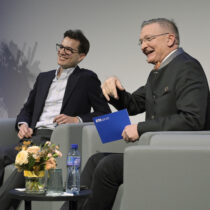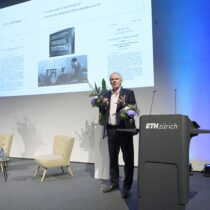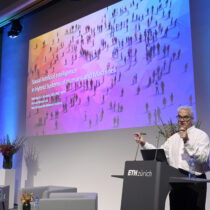Who Owns the Moon?
January 16, 2025The first known human footsteps found in Laetoli, Tanzania, are protected. Astronaut Neil Armstrong’s first steps on the moon are not. How do we regulate both our heritage and our future on the moon and in space?
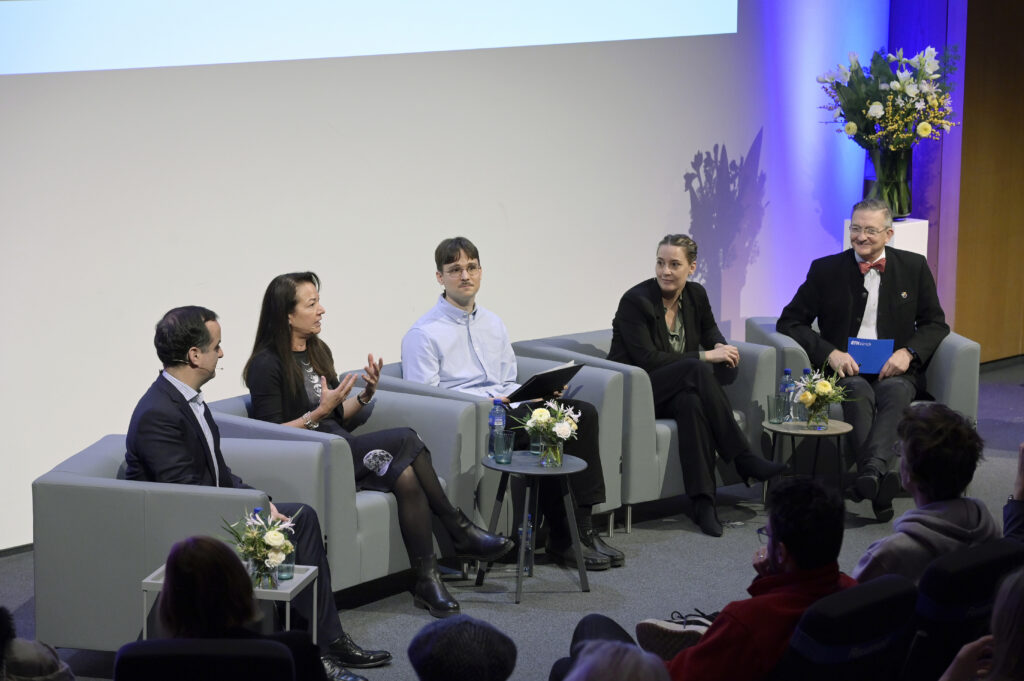
Michelle Hanlon, Executive Director of the Air and Space Law Program at the University of Mississippi, recently came to ETH for the Global Lecture Series: Who Owns the Moon? to hold a presentation and discuss just that.
Joining her were panellists Luca Thanei, Research Assistant in the Chair for the History of Technology at ETH Zurich; Catherine Kropf, Deputy Head of the Swiss Space Office; Rodrigo Polanco, Legal Adviser, Swiss Institute of Comparative Law; and host Chris Luebkeman, leader of the Strategic Foresight Hub in the Office of the President at ETH Zurich.
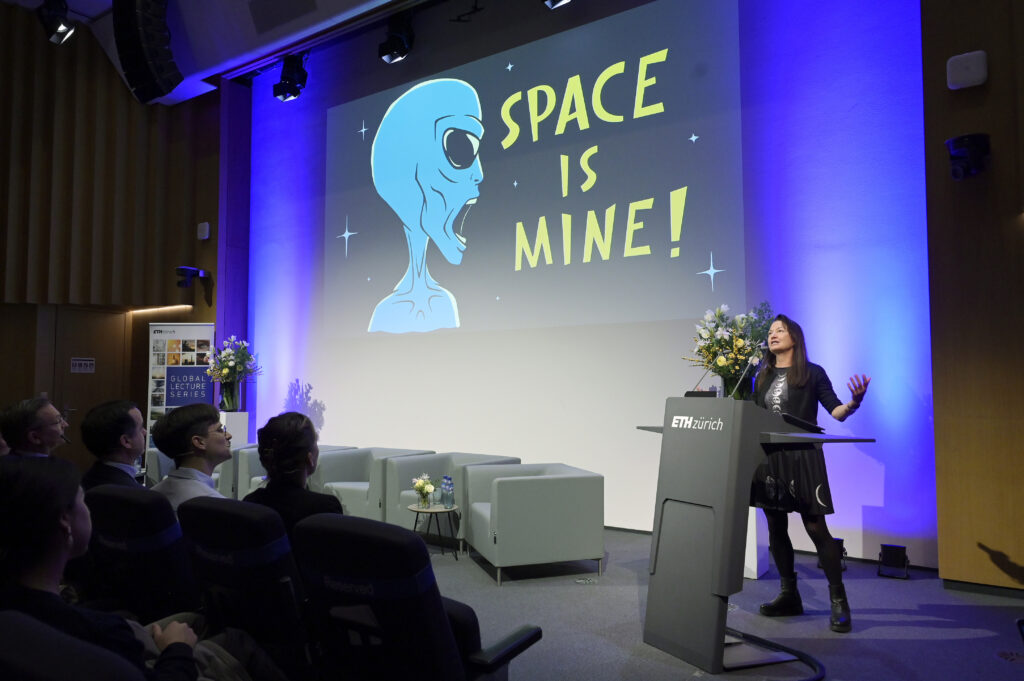
Hanlon’s presentation begins with a short answer to the question at hand: “Res nullius – it belongs to no one; res communis – it belongs to everyone.” There is a mix of open claims and responsibility, with no one really in charge. “It boggles the minds of my students that … all of space law can fit on one slide.” A list of treaties and agreements dating back to the 1960s and 70s is followed by later “soft law” guidelines and resolutions in the 2000s. With only four of the treaties widely ratified, the debate on the enforceability of today’s space law is ongoing, although the Outer Space Treaty of 1967 does specify that “Outer space, including the moon … shall be free for exploration and use by all States,” although they may not claim sovereignty. In today’s race for resources, it is “use” that appears to be the current focus. People may argue that this applies only to states, not commercial entities, but the OST places them under the supervision of the states they are in, even though it does not specify how exactly, and even though there are many other inconsistencies within the two-page treaty. With the exception that a vague “due regard” must be taken in the exploration of the moon.
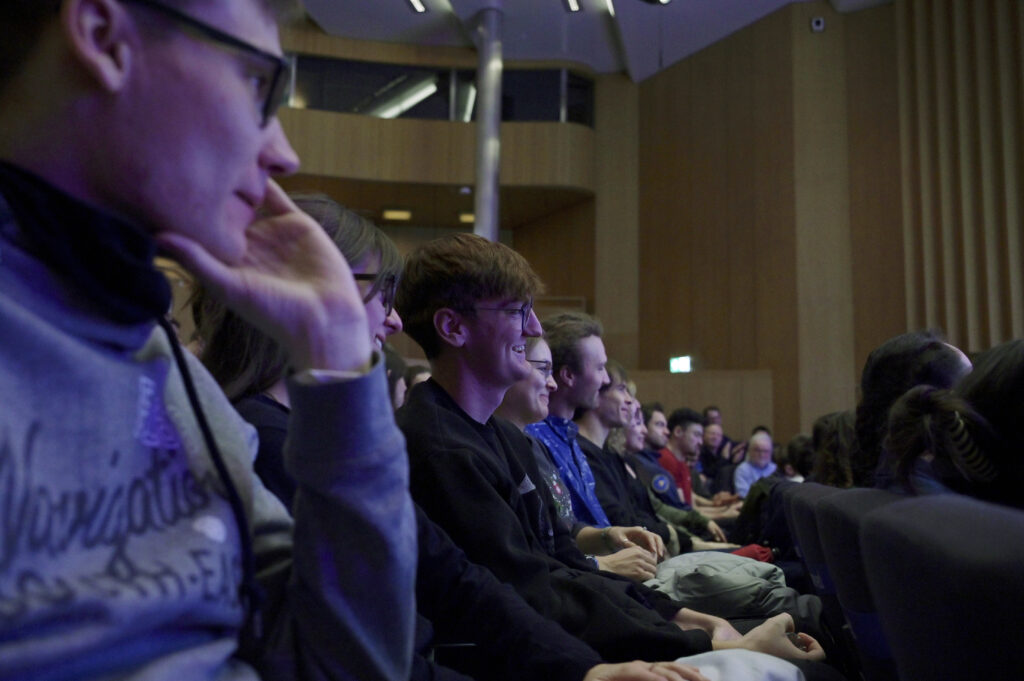
So as Hanlon says, the moon is “the province of all humankind and we have to have due regard for everyone. That tells you that anytime anything happens in space, there’s going to be an argument about it, about who is in the right. That tells you that lawyers are going to make a lot of money off of this provision if we don’t start clarifying it.”
Meanwhile, with 52 years having passed since the last moonwalk, 150 human and robot missions are getting ready to begin launching by 2033, so it’s definitely time for laws to get clarified.
China and the United States hold the position that if you extract resources, then you own those resources. As Hanlon explains, to survive long-term on the moon, we need water, which is all concentrated at the lunar south pole, so everyone is going there. “We’re all going to the same place on the 150 missions, going to the lunar South Pole. What could possibly go wrong?”
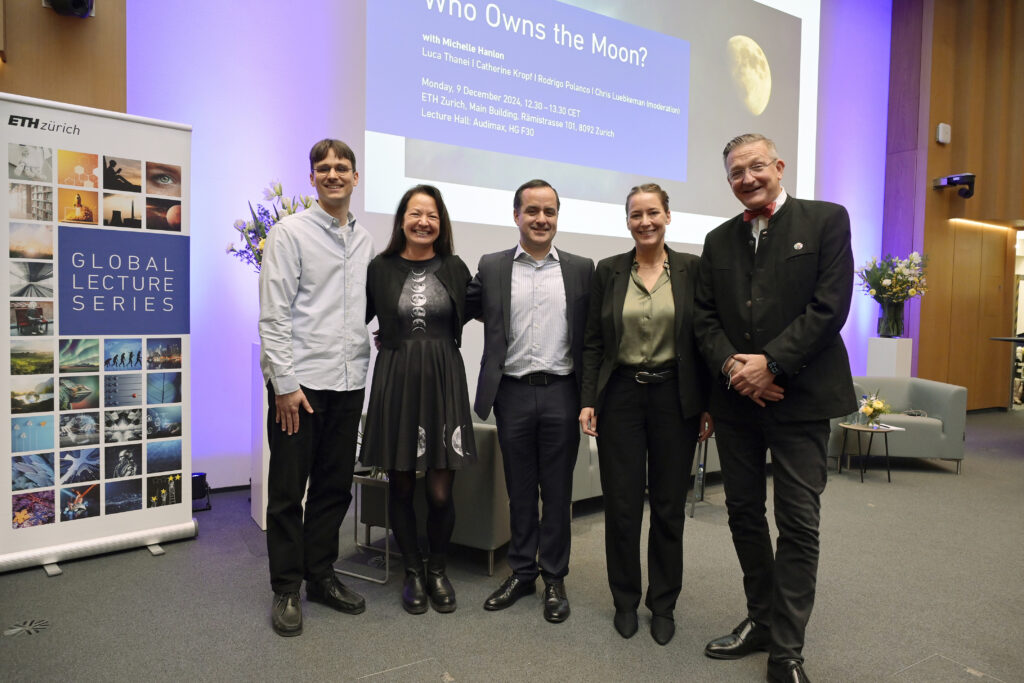
The ensuing discussion underlines the need for collective action even more. Luca Thanei notes that it’s interesting to see that the same problems apply to the moon as to low Earth orbit and the satellites within it. Catherine Kropf sees the need to answer these questions very soon, because everything is proceeding so quickly. Rodrigo Polanco believes that states will react only once there is a problem, and that the problems will be spectacular.
The subject has moved down to low Earth orbit, where things are getting more complicated as things get more crowded. Older satellites cannot be manoeuvred, so they collide into other objects. Thanei points out that collisions have contributed excessively to the accumulation of space debris in the past. “The friction that will become virulent on the moon is already virulent around the Earth. It’s a legal wild west, where the rule of the first mover applies. Everyone is trying to claim near-Earth space as a resource before it is regulated internationally.”
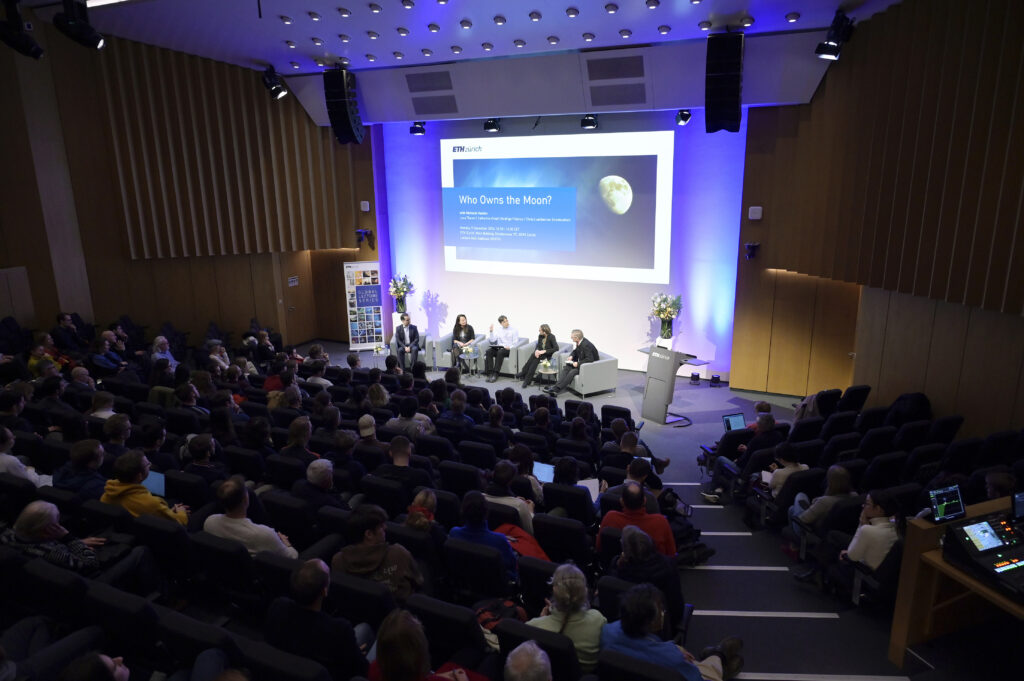
Hanlon expands: “We do have people thinking about it: the international norm says you have to de-orbit your satellite within 25 years of end-of-life.”
“The observation data from the ground is not that reliable,” says Thanei, in that you can’t tell from earth when old satellites will collide.
Luebkeman summarises: “So we don’t really know where everything is?” Panel nods. “I’m kind of confused about who owns the moon, who owns space, who’s responsible? We all are, no one is. So we’re ready but we’re not ready. This is a disaster waiting to happen.” He turns to Kropf “How do you feel about this? Is this exciting or terrifying or a little bit of both?”
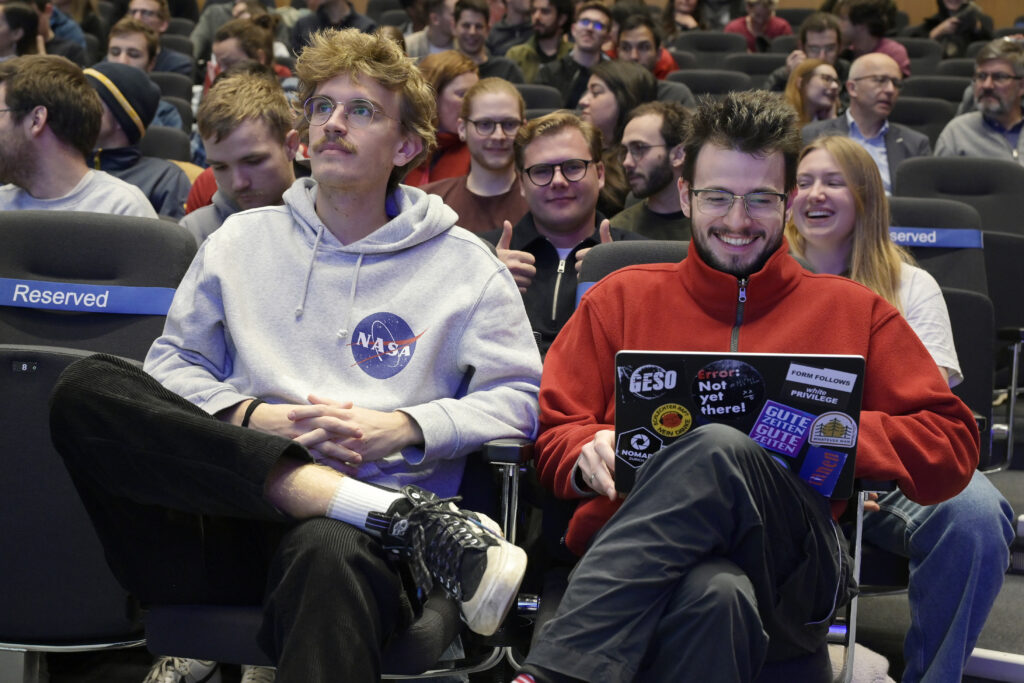
“I’m not sure there is such a lot of uncertainty,” Kropf explains. “We do have treaties, that’s already a good thing. They do [define who’s] responsible for the damage caused by a space object. Of course you can argue that space debris is not a space object anymore. But from a Swiss perspective that would not be the correct interpretation of the United Nations treaty. So I don’t think there’s that much of a gap.”
Polanco brings the discussion around to preventing the worst: “For me, the best accident is the one that doesn’t happen. It’s scary if we blow up half of the moon, but we don’t want to get there.”
He also has the answer to Who Owns the Moon: “In 1953, Chilean Jenaro Gajardo Vera registered the moon in his name in Talca, Chile. When he died, he left it to mankind.”
Watch the full recording:
Find out more about our ETH Global Lecture Series here.


